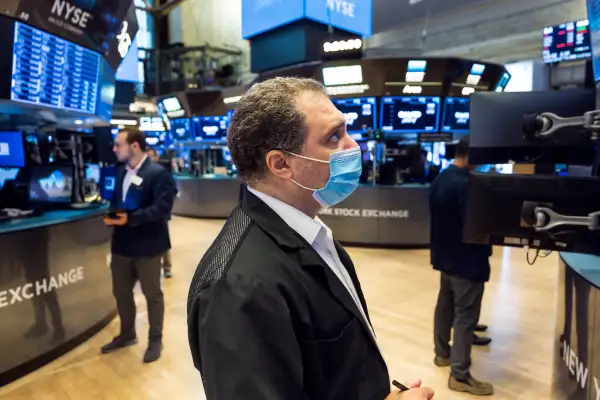Investors Finally Think the Stock Market Is About to Fall
Money is not a client of any investment adviser featured on this page. The information provided on this page is for educational purposes only and is not intended as investment advice. Money does not offer advisory services.

If you want to hear an optimistic outlook for the stock market right now, don't ask investors.
Investors' expectations that stock prices will rise over the next six months dropped 16.4 percentage points this week to 22.4%. That's the lowest level of bullish sentiment since the heart of the pandemic in July 2020 and far below the historical average low of 28%, according to the latest American Association of Individual Investors (AAII) sentiment survey.
But it's not just that optimism among everyday investors is dropping. The survey, which AAII has conducted weekly among its members since 1987, also found that investors' expectations that stock prices will drop over the next six months jumped 12.1 percentage points to 39.3%, above the historical average of 30.5%. Others believe that stock prices will stay unchanged over the next six months, with neutral sentiment up 4.4 percentage points to 38.3%, also above its historical average, which is 31.5%.
Investors have been enjoying strong stock market returns recently. While the market plummeted when COVID-19 hit the U.S. in March of 2020, it quickly rebounded with benchmarks like the Nasdaq hitting record highs by the summer — even as the country faced high unemployment and uncertainty around a vaccine. Last month, the S&P 500, another benchmark commonly used to measure the broader stock market, was up 100% compared to its March 2020 pandemic low. (In other words, you could have doubled your money by now if you'd bought stocks in March 2020 when the market crashed.)
While it's not necessarily going to be doom and gloom for the market going forward, experts do expect a market correction.
"By historical standards, this bull market is long overdue for a correction," Jim Paulsen, chief investment strategist at the Leuthold Group wrote in a research note at the end of August. "A 10% to 20% selloff is almost certain to occur before long, and it would not be surprising if investors encounter one before this year is over."
The future of stock prices is — as always — uncertain. But having a well-diversified portfolio, rebalancing regularly and sticking to your investment plan even when the market gets volatile will help you avoid losses in the long term.
More from Money:
What Is the 'Golden Cross,' and Why Are Bitcoin Investors Obsessed With It?
Robinhood Is Giving College Students Who Open Accounts $15 to Start Trading
This Common Mistake Is Costing Retirement Savers 15% of Their Income
